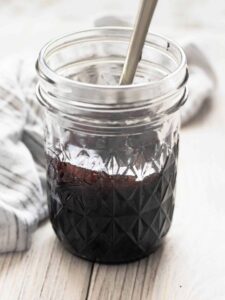Olive Oil vs Ghee
Both Ghee and Olive Oil are helpful oils for cooking and frying, and both are healthier options than many other kitchen oils. If you are not sure which may be best for you, this article may be able to help!
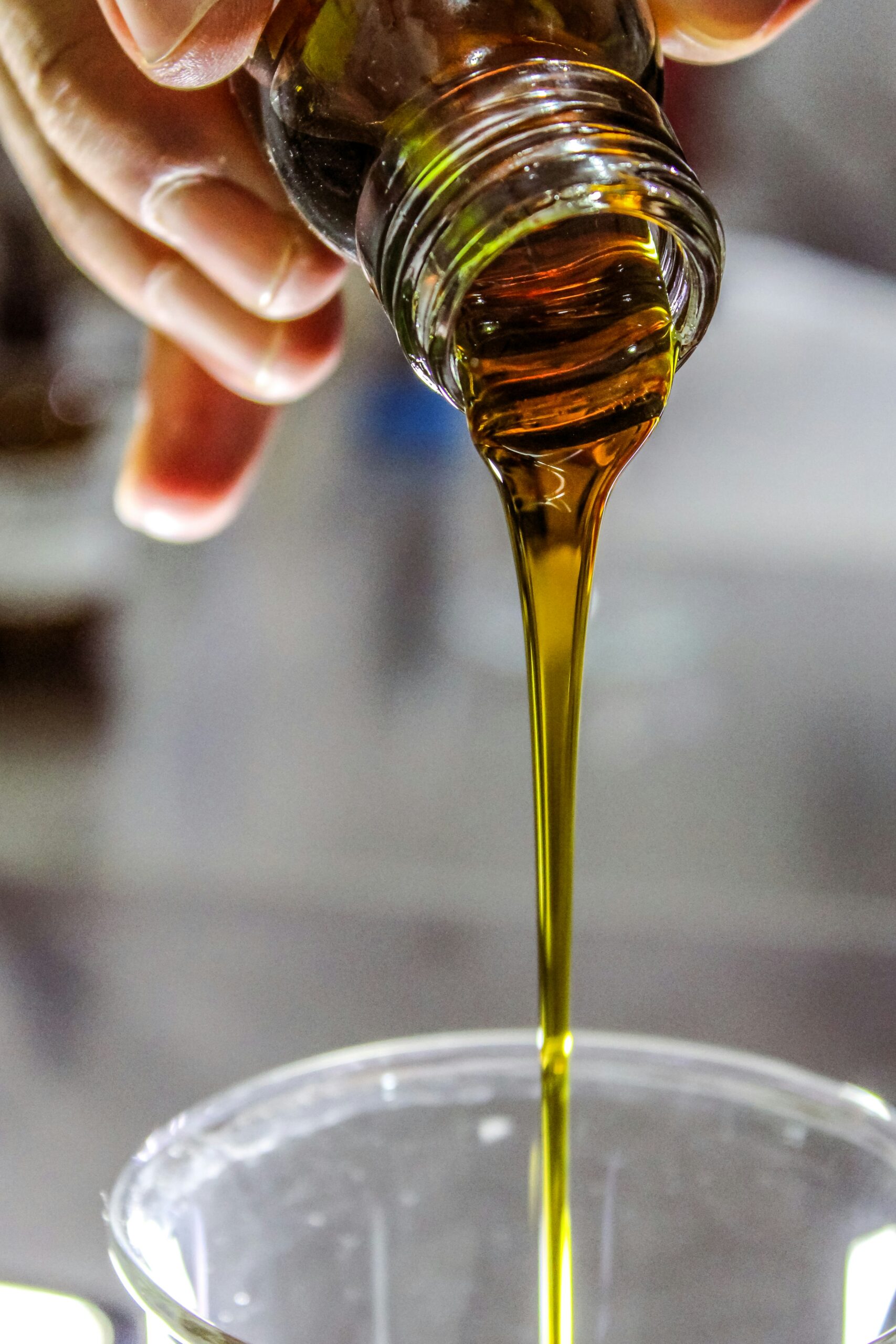
For years olive oil has been promoted as a healthy oil but ghee, a popular ingredient in Indian kitchens, may be an even better choice.
Both of these oils are known not only for their health benefits but also for their versatility. You can use either one for cooking, baking, or even spreading and drizzling over the top of your food. Both have a rich but subtle nutty flavor.
Confused about which might be best for your kitchen? Let’s take a closer look at each.
What is Ghee?
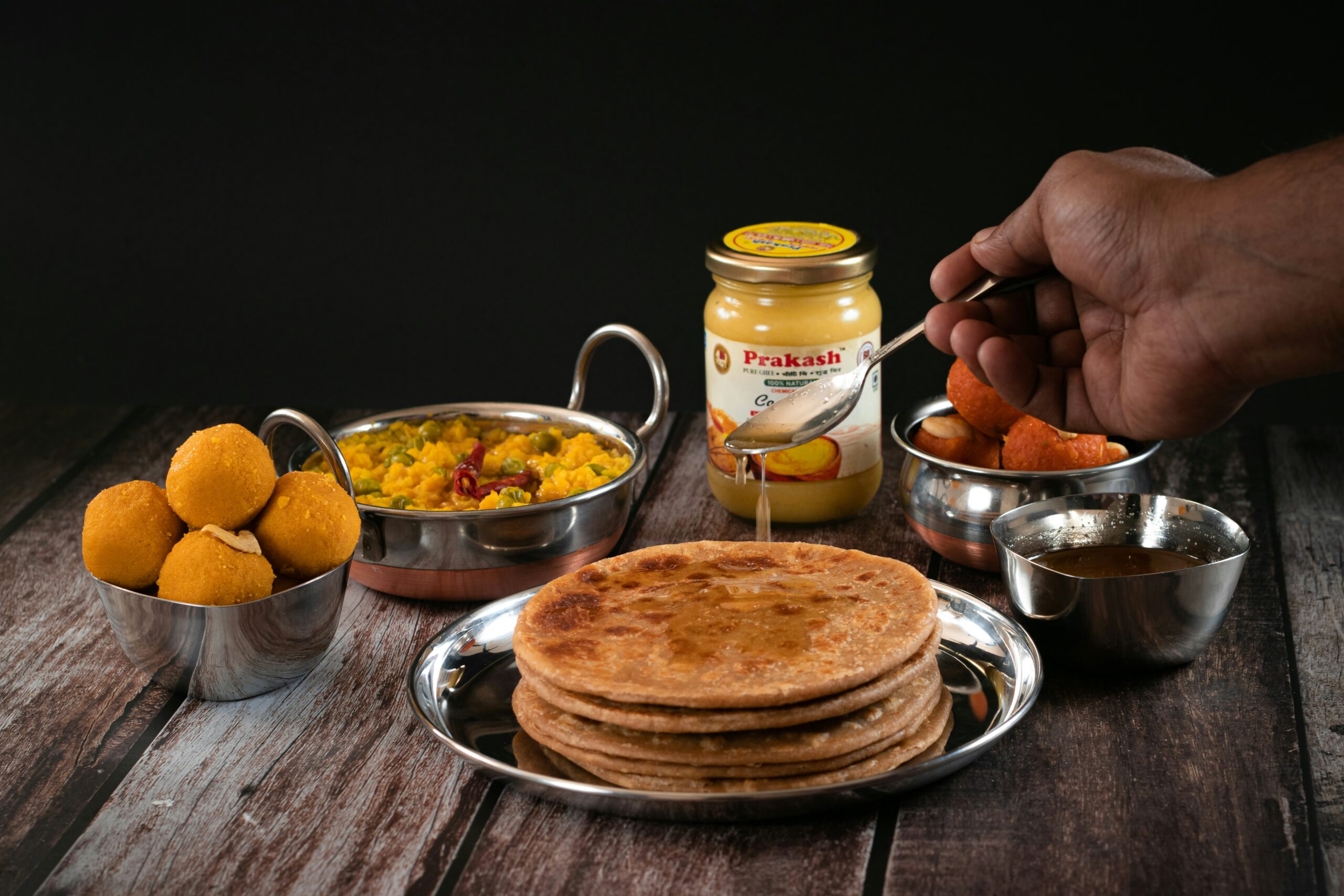
Ghee is clarified butter, which is made by heating butter at a low temperature. As the butter heats, the water evaporates and the milk solids settle at the bottom of the pot. What is left at the top of the pot is a delicious golden oil. This oil is very popular in Indian cooking.
The best ghee is traditionally made from pasture-raised, grass-fed cows. Healthy cows produce better butter, which leads to better ghee, packed full of various health benefits and a rich flavor.
Ghee has a high smoke point which makes it perfect for many different cooking methods, especially those that require high temperatures.
Ghee is solid at room temperature but easily melts for cooking purposes.
What is Olive Oil?
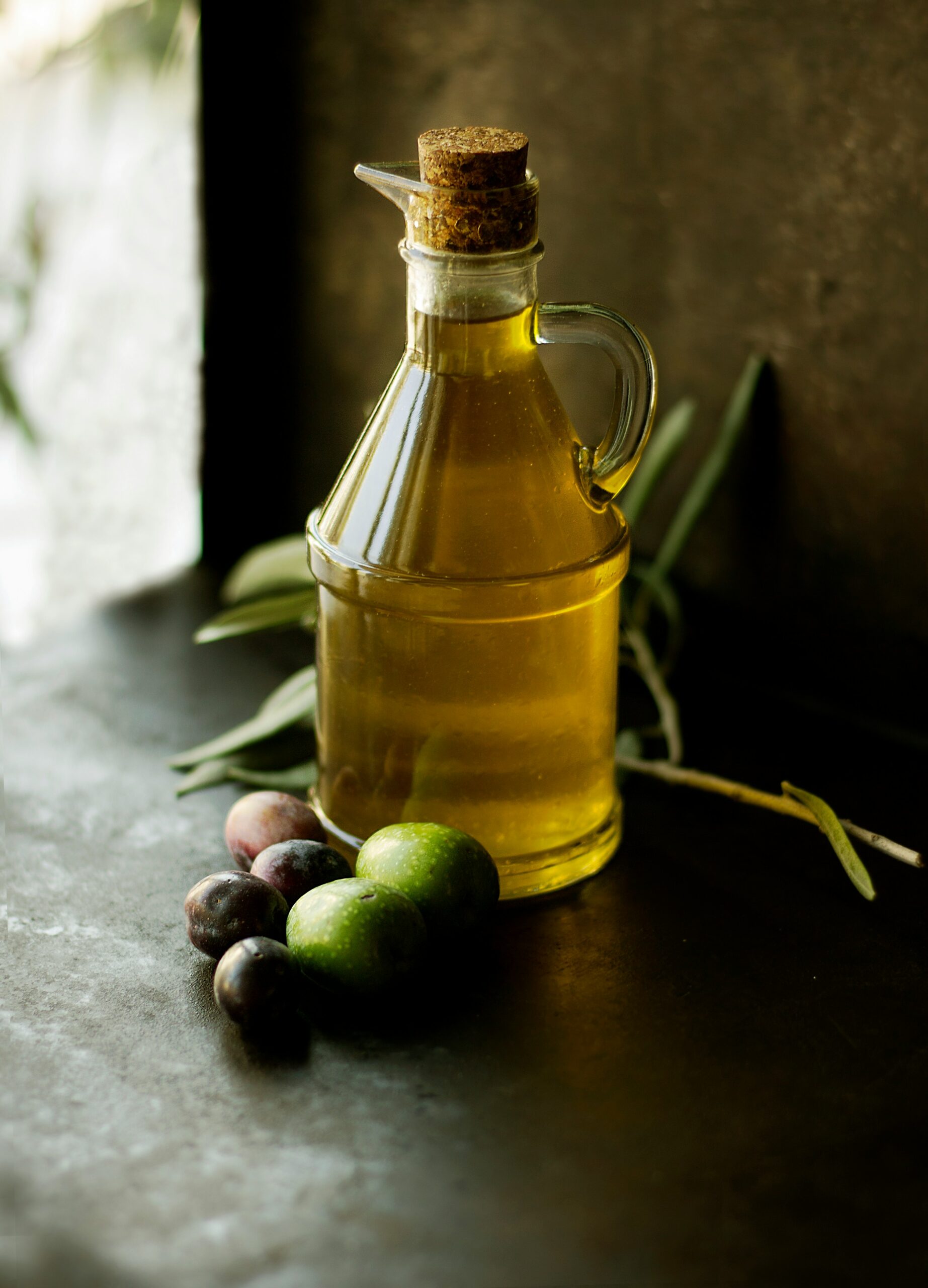
Olive Oil is an oil made from the whole olives of an olive tree. The olives are pressed and refined to release an oil that is high in Omega 9 and full of healthy monounsaturated fatty acids.
Olive oil has been popular in Mediterranean cooking for centuries and in recent decades has become popular worldwide. It adds a light flavor to vegetables and salad dressings.
Olive oil is a thick liquid at room temperature which makes it perfect for drizzling.
Uses and Flavor
Ghee and olive oil are both very versatile, but they are useful for different recipes.
You might think ghee would have similar uses to butter since it comes from butter. However, ghee is butter with the milk solids and water removed, which gives it a higher smoke point.
A higher smoke point makes it perfect for any high-temperature cooking like frying, in addition to baking and cooking. It can withstand high heat without burning your food and releasing noxious gas.
Ghee also retains a slightly buttery, sweet flavor which makes it an excellent substitution for butter at room temperature. Spread it on bread, muffins, or other pastries for a delicious flavor without any lactose, or use it in a recipe to add some depth and richness to the flavor.
Olive oil is a popular choice for sauteing and roasting. It has a low smoke point compared to ghee, so it is designed to be used for lower-temperature dishes. At too high of a temperature, olive oil can actually be harmful.
Olive oil is great for dips, sauces, dressings, and cooking over low to moderate heat. It is often drizzled over the top of dishes to help elevate the flavor of other ingredients like vegetables or cheese.
Olive oil is a popular choice for a keto diet.
Shelf Life
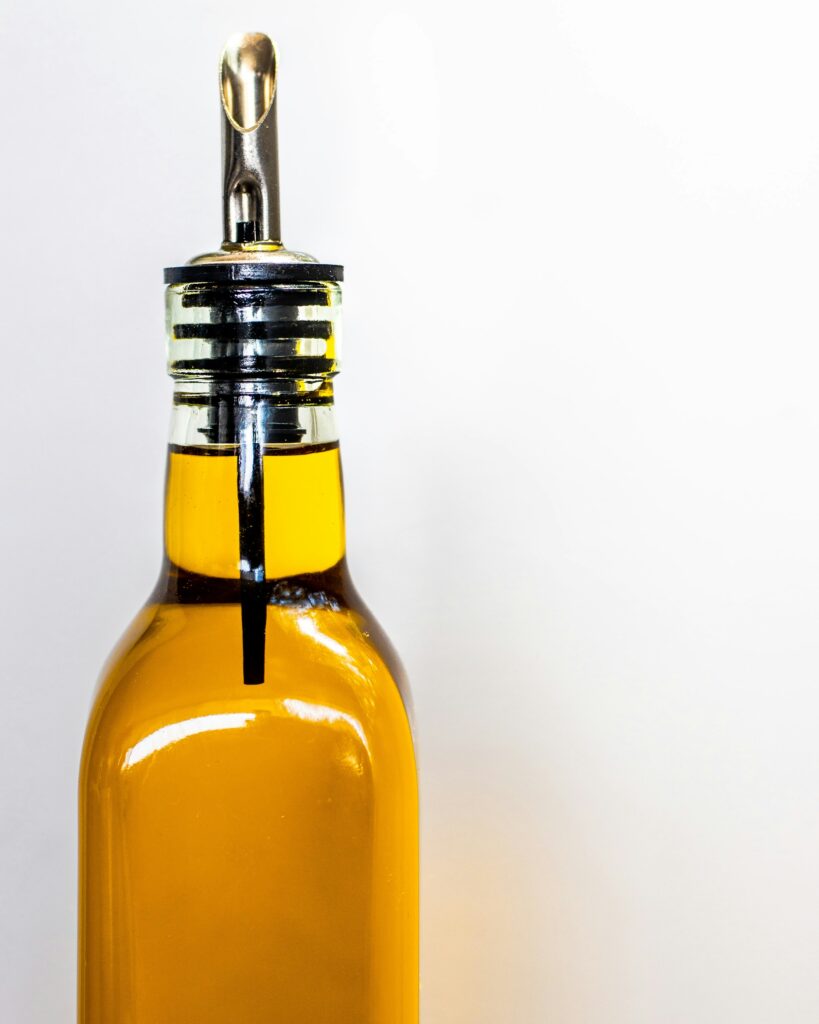
Any kind of oil, once exposed to the air, will eventually go rancid. The exact shelf life will vary by brand and by the process that was used to create it. It may be possible to extend the shelf life of your oil by storing it in the refrigerator.
It’s always a good idea to obey the date on the bottle, but also use your nose before pouring the oil!
Ghee, once opened, has a shelf life of about three months or up to a year if you get a very fresh bottle or make it yourself.
Olive oil may have a longer shelf life. A bottle of olive oil is typically good for one to two years.
Health Benefits
Both Ghee and Olive Oil are known for their nutritional value and health benefits. They are a much healthier option than vegetable oil which is high in saturated fats.
Both of these oils are good sources of vitamin A, vitamin E, and vitamin K and have anti-inflammatory properties. Both may help lower your risk of Type 2 diabetes.
Ghee also contains fats that are antiviral and may actually help to boost your immune system with fat-soluble vitamins. It also provides excellent energy and may be good for gut health.
Olive oil can help stabilize blood sugar and lower bad cholesterol levels to reduce the risk of heart disease and promote better heart health.
Both options are healthy in slightly different ways, so it’s difficult to say which is the healthier option.
While both oils are full of healthy fats and nutrients, ghee has been found to be harmful if over-consumed. It should only be enjoyed in moderation. Both kinds of oil also contain more than 100 calories per tablespoon so they may not be the best choice for a low-calorie diet.
FAQs
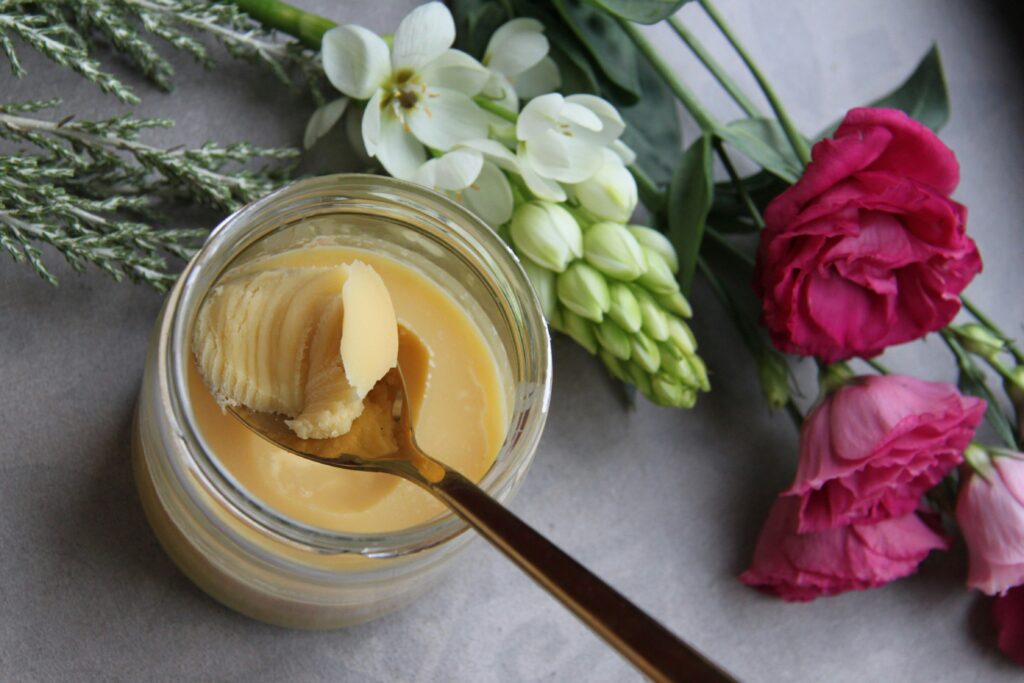
Ghee and Olive Oil can both be a part of a healthy diet and could help with weight loss. They both contain healthy fats, but they have slightly different health benefits.
Both should be consumed in moderation or they may lead to weight gain.
Yes, you can use ghee as a substitute for olive oil. Ghee is a bit more versatile than olive oil because of its high smoke point but it is also not a good fit for all recipes because it is solid at room temperature. When used at a low temperature you can also substitute olive oil for ghee.
Ghee is healthier than butter because it has the lactose and milk solids removed from it. It also has less fat and fewer calories–but it should still be enjoyed in moderation. It still has a delicious nutty flavor, but may not have as much delicious buttery taste as butter.
Extra-virgin olive oil is olive oil that is still made from olive fruit, pressed, and put through minimal processing. Less heat is used to create it and it is not treated with chemicals. It is typically darker than regular olive oil and more flavorful.
The smoke point of oil is the amount of heat it can withstand before it begins to smoke or burn.
Because ghee is made from cow’s milk, which is an animal product, it is not vegan. Olive oil would be a great choice for someone wanting to make a vegan dish. Ghee is, however, dairy-free and is a popular substitute for those with lactose intolerance or those trying the Whole30 diet.


